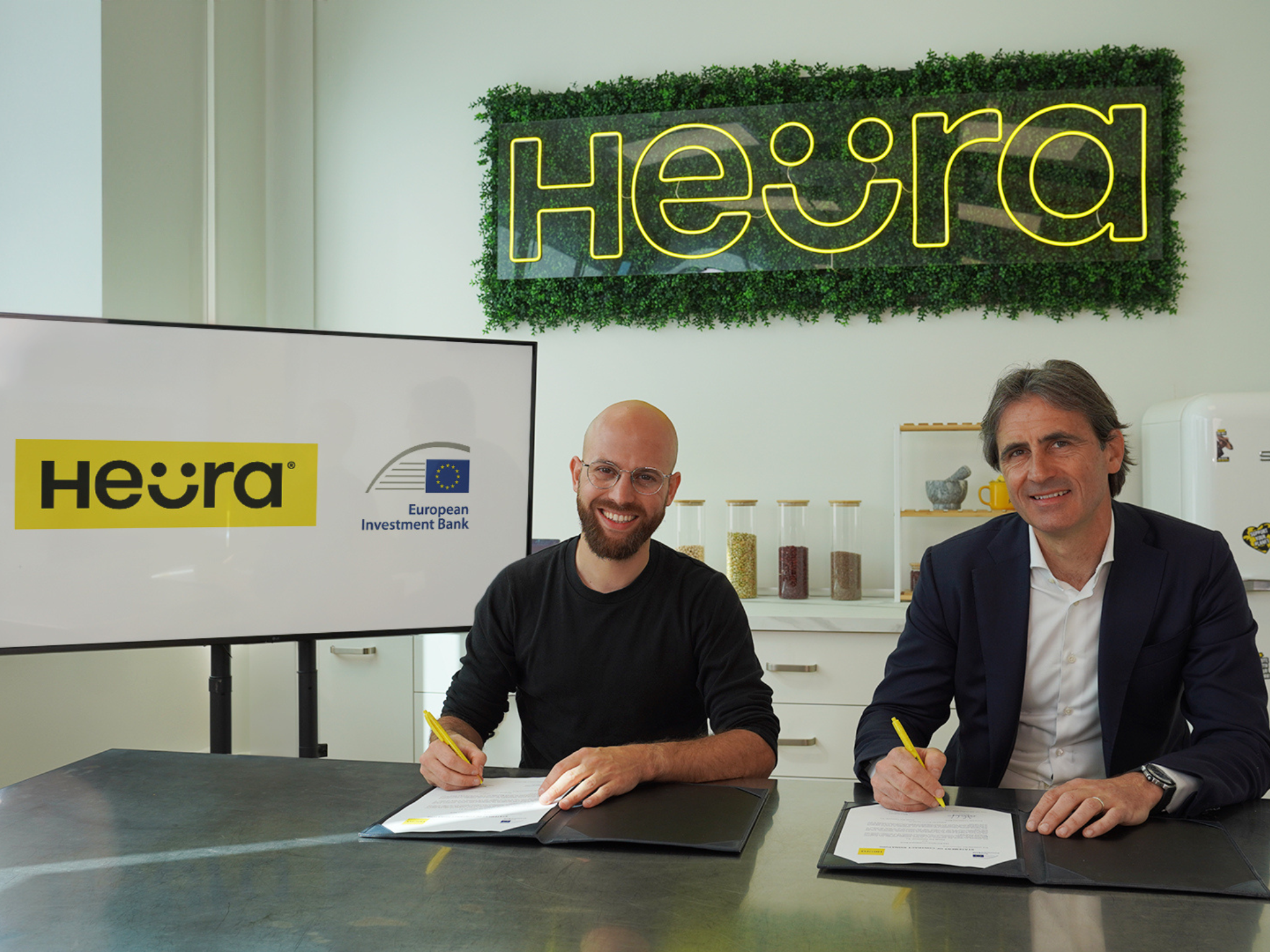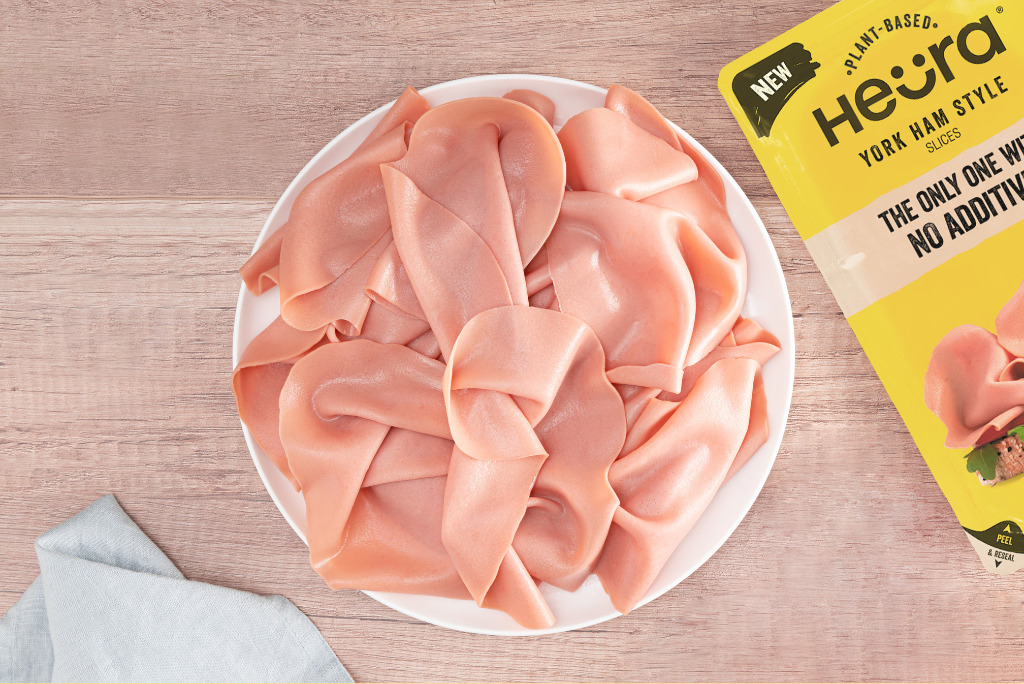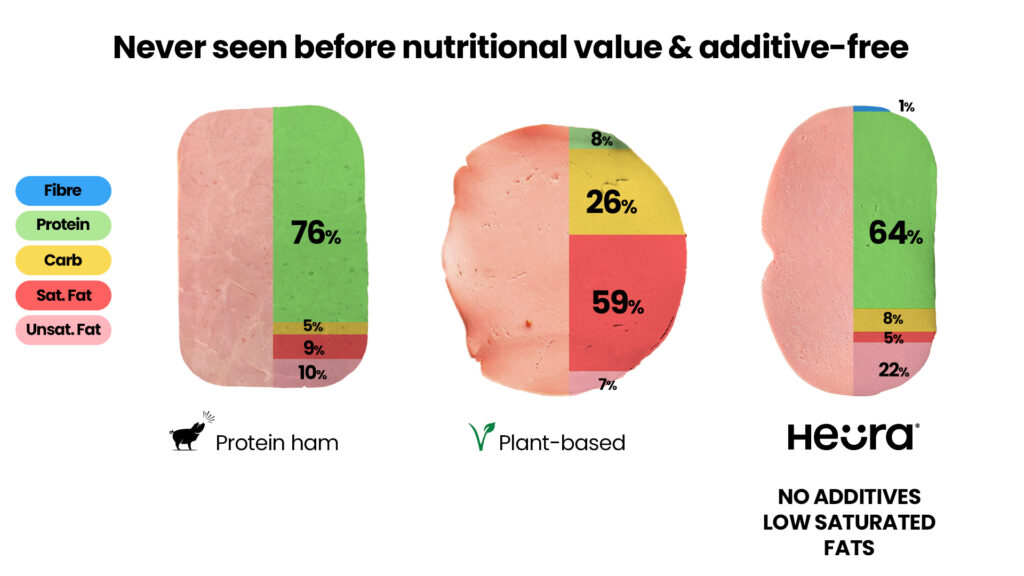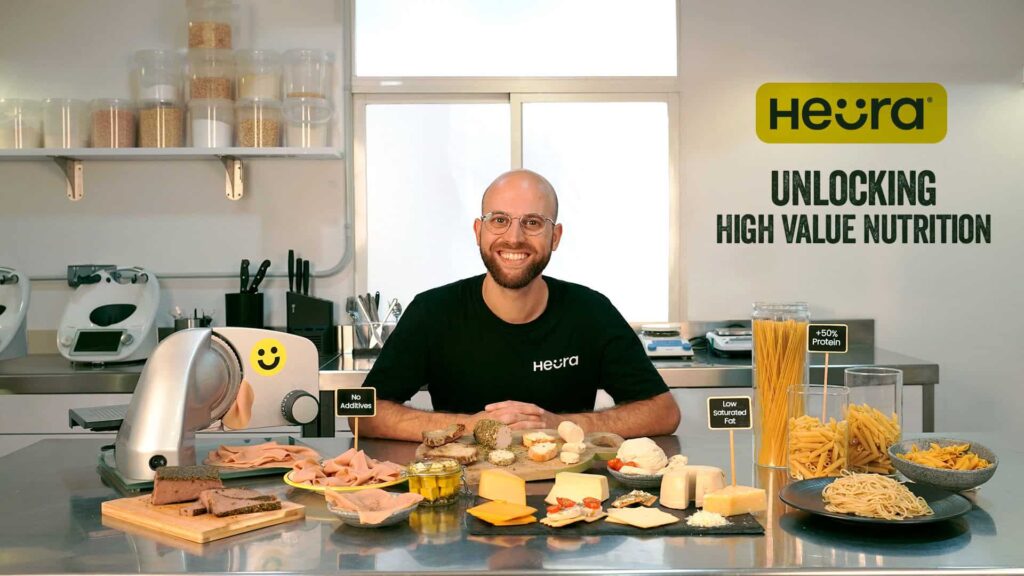
Spanish food tech startup Heura Foods has received a €20M ($22.2M) loan from the European Investment Bank to move beyond plant-based meat, and expects to become profitable by the end of this year.
Sustained sales and product innovation are helping Barcelona-based Heura Foods inch closer to its goal of turning a profit this year, and attract yet more investment to expand its business.
The Spanish startup is known for its vegan chicken, burgers and sausages, which netted €38M in sales in 2024 (matching the 2023 total), thanks to a 35% growth in Southern Europe. Heura has simultaneously cut its losses in half, and now expects to become profitable in Q4 2025 and continue that momentum for a first full year of profitability in 2026.
“This leadership is built on constant innovation and the boldness to transform the category with offerings that reconnect us with the flavours that move us inside, blending nutritional excellence and sensory pleasure to help us live longer and better,” said Heura co-founder and CEO Marc Coloma.
To that end, the firm is now diversifying into “nutrient-dense” plant-based cold cuts, non-dairy cheese, and protein-rich pasta, an effort for which it has received a €20M ($22.2M) loan from the European Investment Bank (EIB), the EU’s lending arm.
It comes a year after the company’s €40M Series B round, and takes its total raised to €108M ($120M). In addition to supporting R&D on the new products, the financing will also help Heura scale up production by buying equipment for both its own lab and co-manufacturers’ facilities in Spain.

Heura doubles down on Southern Europe
Since being founded in 2017, Heura has emerged as a leader in Europe’s plant-based meat category, with its products available in more than 20,000 stores in 20 countries.
But the company hasn’t been immune to the alternative protein sector’s challenges, with several startups and restaurants closing down and even more being acquired by other businesses. The consolidation phase has led Heura to fine-tune its approach to profitability, dialling down its footprint in the UK, Switzerland, and Austria.
At the same time, it has magnified its focus on Southern Europe, while retaining all its staff in the midst of implementing an “ambitious efficiency plan”. This is because the company’s sales grew by 35% in Italy, France and Portugal, and stabilised in Spain.
But the company says it’s already the leading plant-based meat maker in its home country, with a market share twice as high as its nearest competitor, and the highest brand loyalty. Seven of the 10 best-selling meat alternatives in Spain come from Heura, while its York-style ham has driven a 60% growth in the segment.
This year, it has launched chicken chunks, a whole-cut fillet (in collaboration with France’s Swap), and a chicken burger, and has “two more game-changing products” earmarked for the summer, head of content Laurent Gubbels told Green Queen last month.
The company is also expanding its foodservice presence via key partnerships with cruise line Royal Caribbean, airline company Vueling, and fast-food chain Rodilla, and has appeared at “high-visibility” events like Taylor Swift’s Eras Tour shows in Madrid.
How Heura plans to battle the UPF debate with new products
In October, Heura announced its intention to tackle a wider range of categories and battle the ultra-processed tag that has plagued the plant-based sector. A survey of nearly 20,000 Europeans has shown that among those who want to change their diets, 51% want to eat healthier food.
Heura’s strategy involves offering meat and dairy alternatives and pantry staples that eschew additives, modified starches, and saturated fats, with a focus on new technology instead of just new ingredients.
At Future Food-Tech London, the company served up spaghetti made from wheat semolina and soy protein isolate, amping up its protein concentration from under 20% all the way to 60%, and lowering the carbohydrate content by 74%.
It also exhibited dairy-free versions of feta, parmesan, mozzarella, and melty cheese that contained 20% protein and low saturated fat. Plus, Heura gave a glimpse of its nutrient-forward cold cuts, describing them as the only vegan deli meats “with high protein, low saturated fat, and no additives while having an unparalleled sensory experience”.

“Who wouldn’t want to replace excess saturated fats, simple carbohydrates, and unnecessary additives with nutrient-dense products made from plant proteins and healthy lipids? And we can do this by leveraging readily available, consumer-friendly ingredients that require no regulatory approval,” said Coloma.
Gubbels confirmed last month that these products are “currently in development”, and suggested that they have already undergone some taste tests.
They could be crucial for Heura to sustain in what is a volatile environment for plant-based meat and dairy. Europe was the leading market for these products in 2024, recording $9.7B in sales. This followed a 5% increase in the region’s six largest markets the year before. But UPF concerns have shifted public perception, turning many away from meat alternatives and towards whole foods.
At the same time, the funding landscape has been dire for alternative proteins. Plant-based startups took the biggest hit, raising only $309M in 2024, a sharp 64% fall from the year before. In the first quarter of this year, they only raised $54M.
Heura, however, has bucked the trend, its €40M Series B the largest funding round for a plant-based company last year. And now, the €20M loan from EIB serves as further proof of investors’ confidence in its business model.

EU loan part of food security and sustainability push
“With this agreement, we are boosting the dynamism of the startup ecosystem in Spain and Europe and responding to new consumer needs by developing new sustainable food products,” said EIB Group president Nadia Calviño.
Heura’s loan is guaranteed by InvestEU, the bloc’s flagship programme that aims to unlock €372B in public and private capital to support its policy goals between 2021 and 2027.
“This can help the EU to unlock new economic opportunities, create high-value jobs and solidify its position as a leader in the evolving global food landscape,” explained Lucas González Ojeda, acting director of the EU Commission representation in Spain. “This operation is a good example of what InvestEU can do to empower businesses to grow, innovate and build a sustainable future.”

Alessandro Izzo, the EIB’s director of equity, growth capital and project finance, added: “By investing in the development of new plant-based food products, the EIB is also contributing to a healthier, more sustainable food system in Europe and to the overall food security of the European Union.”
This is a key point. Farmers and climate groups had implored the Commission to form a plant-based action plan in its agrifood vision, but it failed to do so. But following calls from policymakers, agricultural commissioner Christophe Hansen finally committed to developing a protein diversification strategy.
“It will focus on fostering the domestic production to improve self-sufficiency to reduce the long-standing dependency on imported plant-based protein and on diversifying imports of plant-based protein to increase the EU food security,” he said.
The post Spain’s Plant-Based Meat Leader Bags €20M EU Bank Investment & Promises Q4 Profitability appeared first on Green Queen.
This post was originally published on Green Queen.